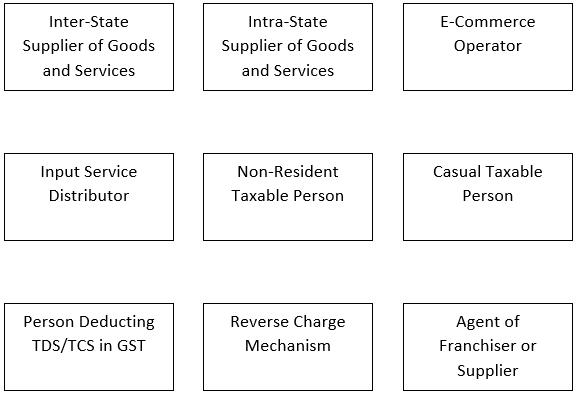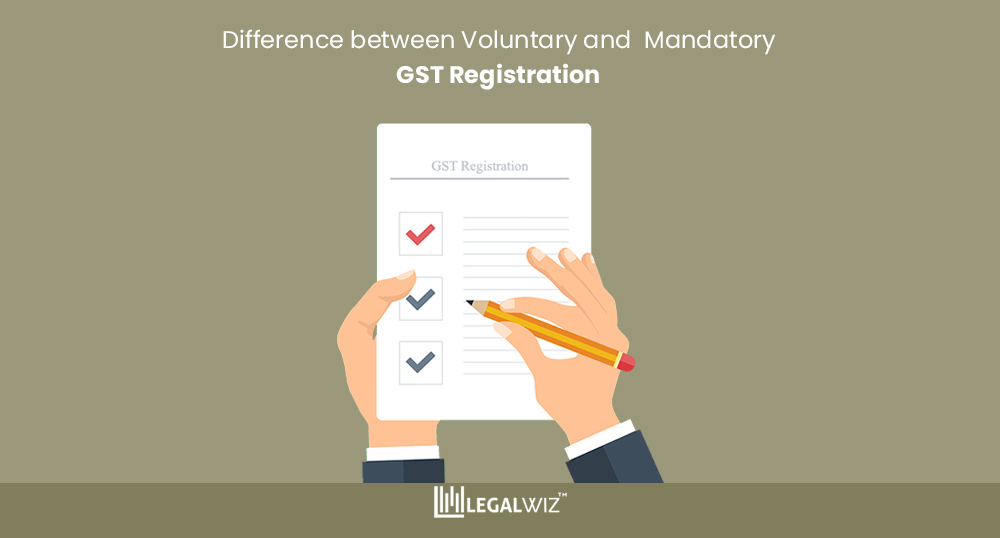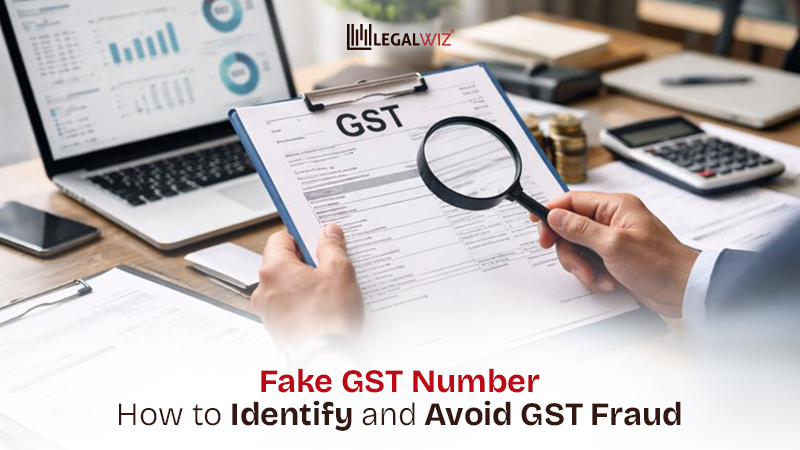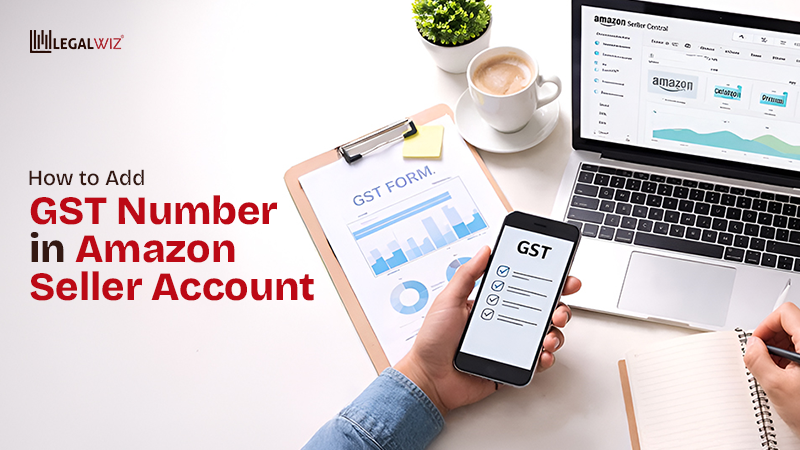Difference between Voluntary and Mandatory GST Registration
What is GST?
GST is introduced to bring all the taxes under one regime. The combinations of the following taxes result in GST.
- Service tax
- Central Excise duty
- Custom duty
- VAT
- Central sales tax
- Luxury tax
- Entertainment and amusement tax
- Octroi
- Taxes on lotteries, betting, gambling
Hence all the taxes levied on manufacturing, trading, importing, exporting, consumption of goods and services are now known as GST. It has merged the central and state taxes. But GST has 3 parts.
SGST– State GST
CGST– Central GST
IGST– Integrated GST
GST slab rate is 5%, 12%, 18% and 28% for different goods and services. There are some goods and services which are exempted from the GST.
Voluntary GST Registration
While some businesses
Benefits
- It will increase the number of buyers, as the buyer prefers to purchase from a person providing tax invoices. Only a registered person can issue the tax invoices.
- Sales can be increased by an inter-state supply of goods or services without much restriction. Also, they can sell their products on an e-commerce platform easily.
- One can take input tax credit on the purchase of goods or services which will help in minimizing expenses.
- GST provides rating to taxpayers on the basis of their compliances and regularity which helps to upscale the image of the entity.
- It will be easy to get credits and loans for the registered person due to transparency in the business.
Liabilities
- The registered person has to mandatorily collect GST and must remit to the government. If the tax is not collected, then the person has to pay it from the total amount received considering that the amount is inclusive of taxes.
- The person has to file all quarterly and annual returns regularly. Otherwise, the government will charge penalties.
- In case of any default, penalties can be levied and can affect credit rating.
Mandatory GST registration
GST registration is not mandatory for every business. The ministry has specified some criteria, to clarify this:
Following persons has to take online GST registration.

- Mandatory GST registration for the inter-state supply of goods.
- If the turnover of the supply of goods within the same state exceeds Rs. 40 lakh except for Arunachal Pradesh, Manipur, Meghalaya, Mizoram, Nagaland, Puducherry, Sikkim, Telangana, Tripura and Uttarakhand.
- A person engaged in the supply of services has to take registration if the turnover exceeds Rs. 20 lakh except for Arunachal Pradesh, Manipur, Meghalaya, Mizoram, Nagaland, Puducherry, Sikkim, Telangana, Tripura and Uttarakhand.
- Persons engaged in the supply of goods and services in Arunachal Pradesh, Manipur, Meghalaya, Mizoram, Nagaland, Puducherry, Sikkim, Telangana, Tripura and Uttarakhand has to register if turnover exceeds Rs. 20 lakh in case of goods and 10 lakh in case of services.
- An e-commerce operator who provides a platform to buy and sell goods and services has to take GST registration even if the turnover does not attract the specified limit.
- An input service distributor has to register mandatorily.
- If the supplier is a non-resident taxable person, such a person has to register under GST.
- A person who is required to pay tax under the Reverse Charge mechanism.
- Any person who is acting as an agent of franchiser or supplier has to register under it.
- Any person who is deducting TDS or TCS in GST has to register under it.
- A person providing online information or database services in India from outside India has to take registration.
- Any other person as notified by the government.
Conclusion
GST registration is only mandatory for the persons specified by the government. But if a person is willing to take the registration then he must follow all the compliance. So the voluntary registration is like a two-sided coin which has benefits along with some liabilities.

CS Shivani Vyas
Shivani is a Company Secretary at Legalwiz.in with an endowment towards content writing. She has proficiency in the stream of Company Law and IPR. In addition to that she holds degree of bachelors of Law and Masters of commerce.







